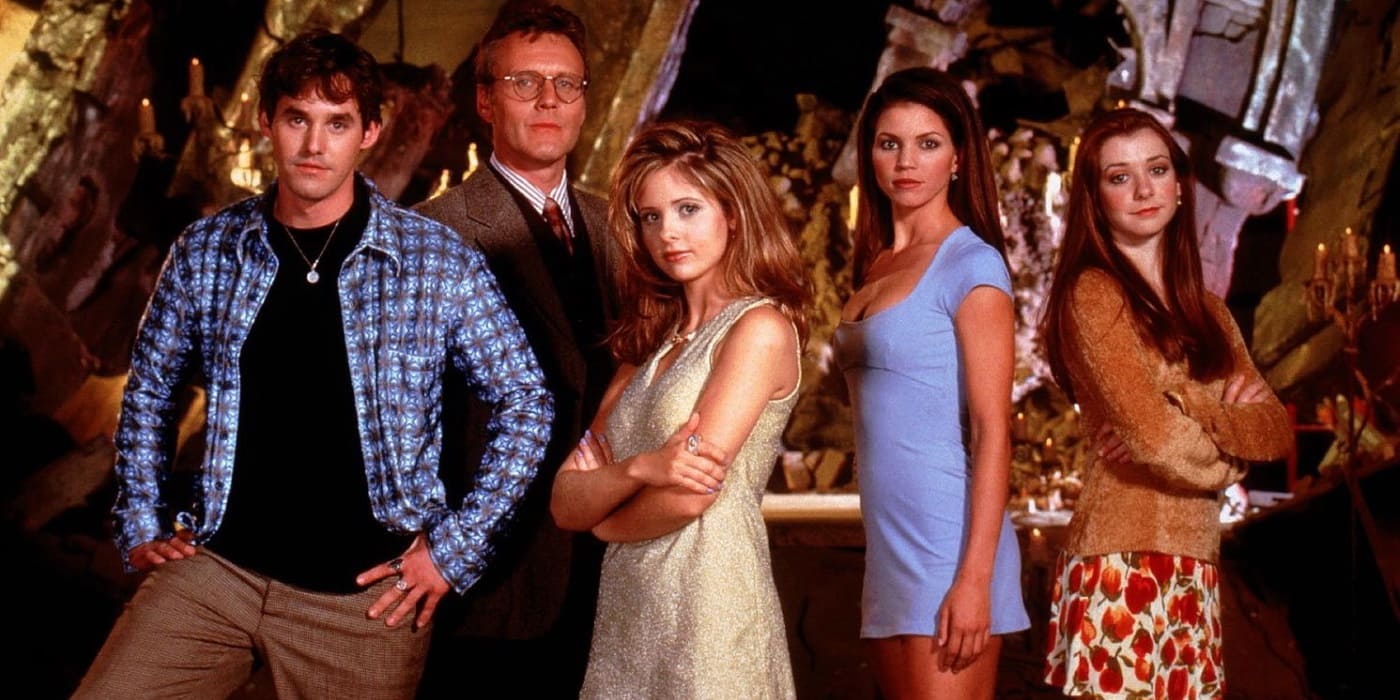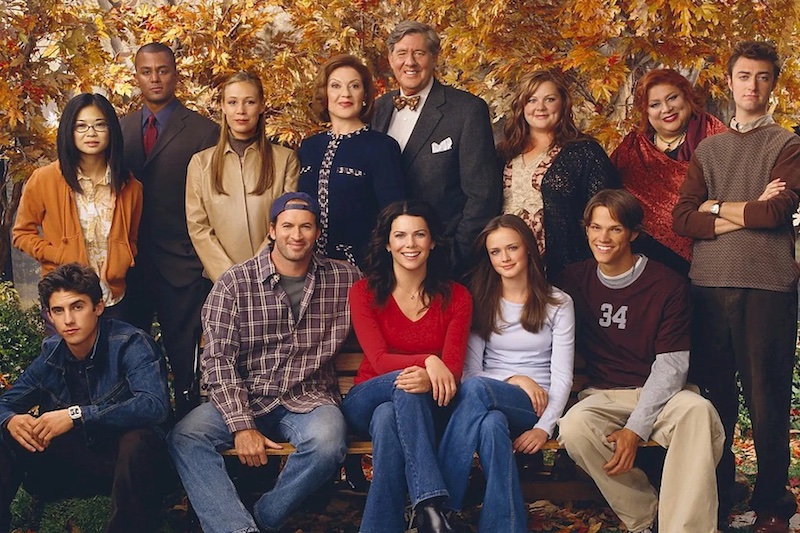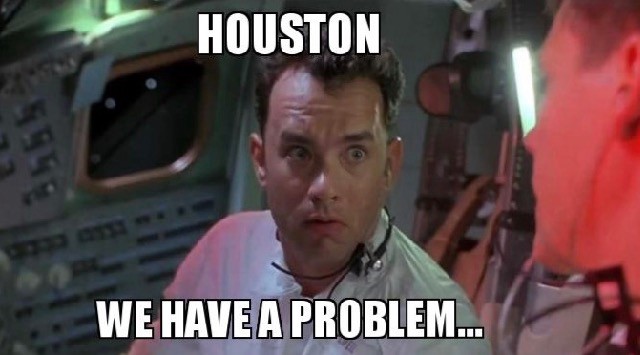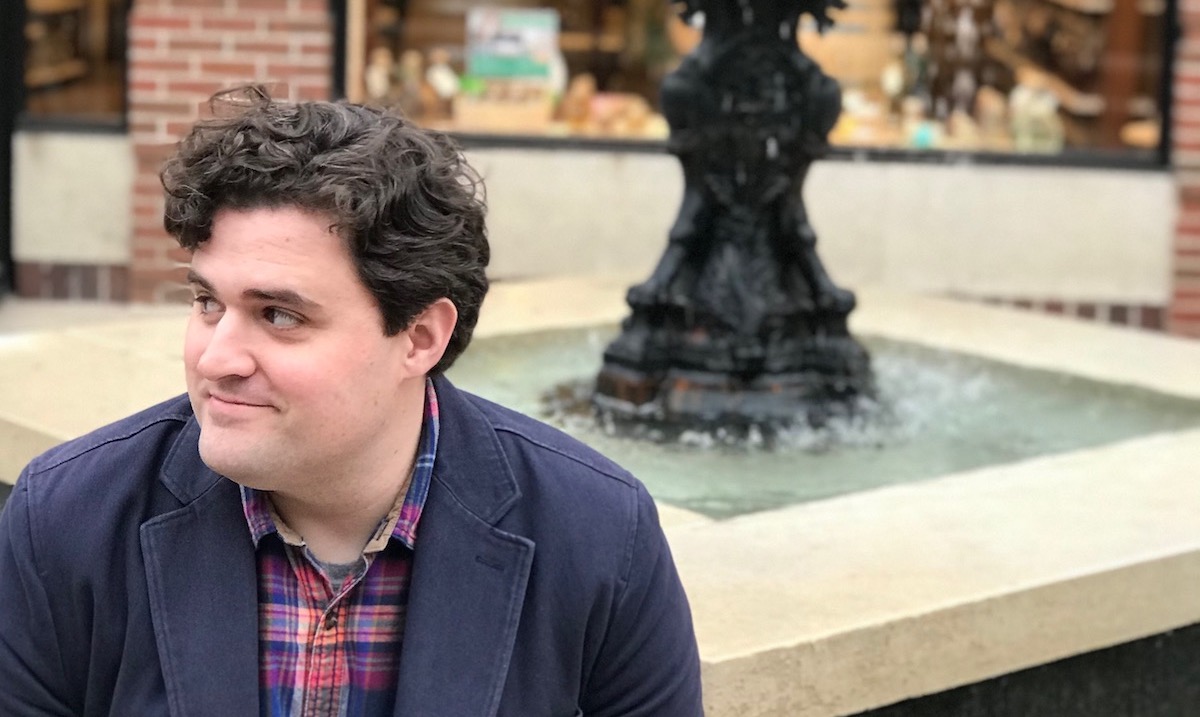Today I am a writing instructor.
But if you'd have asked me what I wanted to do with my life when I was 21, the last thing I'd have said was that I wanted to become a teacher of writing.
If we're being honest, I've always hated writing as a school subject. If we're being really honest, I'd reveal that the only time I ever got a failing grade on my high school report card was in English during the unit we were supposed to write research papers.
I mean, I hate writing. I really despise it. I don't mean back then—I mean right now.° Even today, I'd rather take any test (no matter how long or difficult) than write any paper (no matter how short and easy). Writing well is truly difficult, and I don't know that it ever gets substantially easier.
But I'm getting ahead of myself.
Flashback: High School
It's the 90s! NBC's hit sitcom Friends is killing it in the ratings (though my mom won't let me watch it). Dave Matthews Band is dominating the airwaves, and Bill Clinton is the president but has just been impeached.

And this is how we all dressed when we were slaying vampires!
I am a teenager, and I think I know everything. But what I really know for sure is that writing is the worst subject in school. At least in math you know (a) that there is a correct answer, (b) that you can work the problem backwards to know if your answer is correct, and (c) that the back of the textbook has the answers for all the odd-numbered problems.
In writing, you never know if what you're doing is right. I personally am constantly frustrated because I never seem to know
- whether the ideas I have are good and original or tired and dumb
- whether the words I use to express my ideas are the right ones or not
- whether the commas I use are in the right places at all.
But most of all, I am frustrated that I can never predict in advance what grade I will get on an assignment. Sometimes I work really hard on an essay, and I believe in what I am writing and how—only to wind up with a C on the assignment. Other times I put it all off until the last minute, dash off something in a few seconds, and turn it in—only to get an A.
The effort I put in doesn't seem to correlate at all to the grades I receive. The process I follow doesn't either. It all seems to be random.
As I saw it then, there were two problems with my writing successes/failures being random:
- I was divorced from the stakes involved. When I got an A on something, I couldn't take any pride in it because I wasn't sure I deserved it. Likewise, when I got a D on something I couldn't really feel guilty and commit to do better, because I had no idea how to do that.
- I was completely dependent on the teacher to tell me how I did. In other subjects, I always had a pretty clear idea of how well I'd done before I ever got the grade. Math quiz I didn't study for? Yeah, I know I didn't do so hot. Biology exam I made flash cards for? Aced it. But with writing, I'd work hard all night on the paper (or not), and then turn it in with no idea what grade I would get. It seemed dumb to hope for the best when I knew that my actions had no bearing on the outcome.
Maybe I can explain how I felt with a metaphor. Choose whichever appeals more to you:
But what if the amount of practice you do has absolutely no bearing on how well you do during a game? Sometimes you play like a champ; sometimes you play like a chump, and it has nothing to do with your preparation. It's random, so you can't improve on purpose, and you can't guarantee your good luck will continue.
It's not like they have a vision and can articulate why their decisions are great—they just stumble accidentally into greatness over and over. Even when the judges ask them about why they did something, all they say is, "Um, I don't know. I guess I just, um, like tulle?"
Aaargh, I just hate those designers!
It's demoralizing, right? Knowing that you have the potential to be very good at what you do, but having no ability to do it on purpose is a recipe for anxiety. For me, it wasn't so much that I was afraid of doing poorly—I generally got pretty good grades on writing assignments. But I had to chalk it up to luck, not to effort, and so I had to constantly face the possibility that my luck would run out and that I'd be powerless to bring it back.
I'm getting anxious just writing this, remembering about how terrible it felt.
Okay, so in high school in the late 90s I realized that writing is the worst, and I just checked out. I avoided writing assignments if at all possible, and when I couldn't avoid them, I put them off till the last minute.
After graduation, I enrolled in the University of Houston, just a short commute from home, and I attended for one whole semester. I got a C in first-year writing (among other mediocre grades), and I dropped out of school, happy to know I wouldn't have to write anything for the foreseeable future.
Flash Forward: College Again
I finally went back to college in the summer of 2003.° America's Next Top Model had just debuted and we were smizing all the time (except when we were worried about twin wars in Iraq and Afghanistan, that is).

We were so over slaying vampires, preferring now to watch those Gilmore Girls simultaneously navigate love triangles.
I knew I wanted to be in school, but I didn't know what to major in, what to make of my life. So I did the practical thing: I printed out a list of every major my school had to offer, and I went over it with a Sharpie, marking off the ones I knew I didn't want to do:
- Veterinary science
- Mechanical engineering
- Chemistry
When I didn't know much about a major, I'd do some research before ditching it, which is how I marked these off:
- Industrial design
- Global supply chain management
- Exercise science
A few times, when I thought one was a contender, I'd take the intro class to see how I liked it. That's how I learned that these finalist weren't actually as up-my-alley as I thought they'd be:
- Film studies
- Advertising
- International relations
At the end of the year, there was only one major left on my page:
- English
English? You'd think the major that includes the most writing would've been marked off first thing. But I hadn't marked it off because I've always loved reading. Writing I despise, but reading is so lovely that the idea that I could major in it and somehow make a living at it made sure it stayed on the list while every other option was systematically axed.
With no other major left to choose, I found myself in a tricky position.
New Major, Same Old Problems
This next part is absolutely true: I got on my knees and said a prayer. I said,
Dear God,
I'm going to declare English as my major, but you know that I know that writing is the worst and I have a lot of anxiety about it. But it's the only major left, so, you know, if this is a bad idea, maybe you could stop me? If not, I'm just going to go with it, and hopefully it'll work out. Amen.
And I did declare it my major, and I signed up for some literature classes, and I was super excited about reading all sorts of classics and talking about them in class, but in the back of my mind was always the lingering knowledge that, come the end of the semester, there'd be a big ol' paper to write.
The problem I'd had with writing in high school was still there—there still didn't seem to be any correlation between the effort I put in and the grade I got out, and I still had absolutely no idea whether I'd done well or poorly until the teacher told me so. So of course I did what we all do when we are anxious and frustrated by a school assignment: I procrastinated. I would put it off until the night before the due date and then stay up all night eating Cheez-its and chugging Coke, writing the paper in one long hazy panic.°
And then I would turn it in and bite my nails until they bled just waiting for the hammer to fall, for my luck to run out, for the F I knew I deserved.
The grades were never as bad as all that, but I had no idea how to get better, so instead of using them as motivation to improve, I would just shove my anxiety down until the next semester's term papers rolled around. I would enjoy the reading and discussing of books as long as I could, always knowing that the next round of due dates was growing ever closer…
It was an emotional roller coaster, let me tell you. Most days, being an English major felt like being an astronaut, like I was the luckiest person in the world to get to do what I did. But always in the back of my mind was the knowledge that it could become a real Apollo 13 situation at any moment.

A ’90s film of a ’70s event, used as a metaphor for my ’00s state of mind.
A Light Goes On
And then something amazing happened. I went to bed one night in my dorm room, and the next morning, when I woke up, that spot in my brain that was usually empty—the slot that was supposed to contain the information on how to make my writing good on purpose—was suddenly full. It was like someone had flipped on a light switch in my soul, like I suddenly had the missing piece of the puzzle I'd been working on for decades.
My anxiety about writing just melted away.
Suddenly, I no longer needed a teacher to tell me whether my writing was good—I could know for myself when I turned in my work that it was effective because I had the key to understanding the difference between good writing and bad writing. What was opaque had now become transparent.
Back to the Future
It's not an overstatement to say that that morning's realization changed the direction of my whole life.
I felt so much relief at my biggest anxiety just disappearing overnight that, soon after, I got a job as a writing tutor. I got into creative writing. I joined the honor's program and did a collection of personal essays as my thesis. I got serious about going to graduate school.
All this isn't to say that I was suddenly a great writer. Oh no—putting words together in sensical ways was, and still remains, immensely challenging and energy-sapping.° I'd still, all these years later, rather take a test than write a paper.
No, the thing that had changed wasn't that I was suddenly a great writer. It was just that I could look at a piece of writing and make a judgment about its quality. I could arrange words on a page myself and then read over them and say, "This is good/bad writing because" and then articulate why it was so. And being able to articulate whether writing was good or bad meant that I could improve it on purpose.
Flash forward: I became a college professor who teaches writing. Crazy, right? It's as if I grew up saying I never wanted to be the president, and then one day I became the president. Like an arachnophobe becoming a spider handler. The job I feared most became the career I now love.
Morals of the Story
So why am I telling you this story? Why go into all this detail if I'm not even going to explain what the secret to becoming a good writer is?°
How about these for the morals of the story?
- Struggling with or hating writing does not disqualify you from becoming a good writer. I mean, I hate it—but I have become pretty good at it. You can too.
- Struggling in school does not make you a bad student. I dropped out of college, but now I have a PhD. I teach college.
- Writing well isn't an inborn talent. But it is a skill that can be mastered over time. Look around: you don't see any babies born with pencils in their hands.
- Understanding the difference between good and bad writing is a prerequisite to producing good writing on purpose. It's possible to produce good writing on accident. It's possible to pay an editor to make bad writing good. But it's impossible to produce good writing deliberately unless you know what it looks like.
- Understanding the difference between good and bad writing doesn't make writing easy. In fact, I think it makes it harder.




